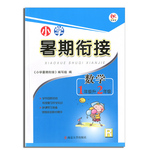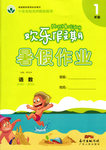
| |||||||||||||||||||||||||||||||||||||||||||||||||||||||||||
 学而优暑期衔接南京大学出版社系列答案
学而优暑期衔接南京大学出版社系列答案 Happy holiday欢乐假期暑假作业广东人民出版社系列答案
Happy holiday欢乐假期暑假作业广东人民出版社系列答案科目:高中英语 来源:每周一测·课课大考卷 高二(下) 题型:050
阅读理解。
In the near future some parts of the world may soon have a new kind of television. It is called high definition television or H-D-T-V. The main difference between H-D-T-V and normal television is the picture. It is more clear and detailed (明细). This is because H-D-T-V has many more points and lines that make a television image (图像). Every colour television picture contains thousands of red, green and blue points, They all come together as an image in the eye of the person
watching. The points are organized in lines that go across the television screen. There are more than 500 lines in a normal television. H-D-T-V has two times as many. To get this clear picture, you must have a big screen. Experts say people using a small screen will see little difference.
H-D-T-V also has clear sound. It is like the sound on a compact disc player (激光电唱机), or CD. All these improvements make H-D-T-V very costly. One kind in Japan now sells for more than 20 000 dollars. In the future, the cost is expected to be about 2 000 dollars. A major problem with H-D-T-V is its broadcast signal. The signal is bigger than for normal, because it carries more electronic in formation.
1.The main difference between an H-D-T-V and a normal television is ________.
[ ]
A.that the picture of normal TV is normal
B.that H-D-T-V is new and good
C.that H-D-T-V is so new that not all parts of the world have got it at present
D.that the picture of an H-D-T-V is more clear and detailed
2.A colour TV image is ________.
[ ]
A.made up of thousands of red, green and blue points
B.formed by the above-mentioned red, green and blue points which are organized in lines that go across the TV screen
C.a black-and-white picture
D.both A and B
3.An H-D-T-V has ________ lines.
[ ]
4.If you want to get a clear and detailed picture from an H-D-T-V, you ________.
[ ]
A.must have the bigger signal for H-D-T-V
B.have to get a big screen
C.should have a compact disc player
D.both A and B
5.According to the passage, which of the following is right?
[ ]
A.The H-D-T-V sets are not popular now because they are too expensive for most people.
B.The signal for an H-D-T-V is not bigger than that for the normal TV.
C.In the future an H-D-T-V will cost 10 times as much as it costs now.
D.In the future an H-D-T-V will be cheaper only because 2 000 dollars will be just equal to 20 000 dollars.
查看答案和解析>>
科目:高中英语 来源:高中课程新学案 高中三年级、英语 题型:050
| |||||||||||||||||||||||||||||||||||||||||||||||||||||||||||||||||||||||||
查看答案和解析>>
科目:高中英语 来源:黄冈重点作业 高一英语(下) 题型:050
阅读理解:
In the United States, boys and girls start school when they are five years old. In some states they must stay in school until they are sixteen. Most students are seventeen or eighteen years old when they graduate from secondary school. Another name for secondary school is high school.
Most children go to public elementary (初小) and secondary school. The parents of public school pupils do not have to pay directly (直接地) for their children's education because tax (税)money supports the public schools. If a child attends a private (私立) school, his parents pay the school for the child's education.
Today about half of the high school graduates go on to colleges and universities. Some colleges and universities receive tax money from the governments. A student at a state university does not have to pay very much if his parents live in that state. Private colleges and universities are expensive. However, almost half of the colleges students in the United States work while they are studying. When a student's family isn't rich, he has to earn money for part of his college expenses.
1.In the United States, children can start school ________.
[ ]
2.________ between secondary school and high school.
[ ]
3.Most parents in the US ________ for their children's education.
[ ]
4.Some students at a state university don't have to pay much money for their higher education because ________.
[ ]
A.tax money supports some colleges and universities
B.their parents live in that state
C.they earn money
D.their family are not rich
5.Students from poor families ________.
[ ]
A.stop studying after secondary school
B.don't go on to colleges and universities
C.have to work to support their families
D.earn money for part of their college expenses
查看答案和解析>>
科目:高中英语 来源:101网校同步练习 高三英语 人民教育出版社(新课标A 2002-3年初审) 人教版 题型:050
| |||||||||||||||||||||||||||||||||||||||||||||||||||||||||||
查看答案和解析>>
科目:高中英语 来源:101网校同步练习 高三英语 人民教育出版社(新课标A 2002-3年初审) 人教版 题型:050
| |||||||||||||||||||||||||||||||||||||||||||||||||||||||||||
查看答案和解析>>
湖北省互联网违法和不良信息举报平台 | 网上有害信息举报专区 | 电信诈骗举报专区 | 涉历史虚无主义有害信息举报专区 | 涉企侵权举报专区
违法和不良信息举报电话:027-86699610 举报邮箱:58377363@163.com